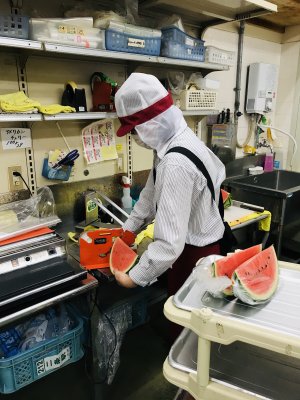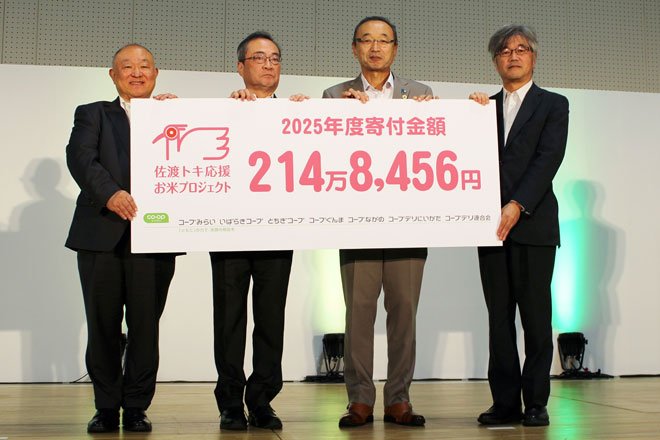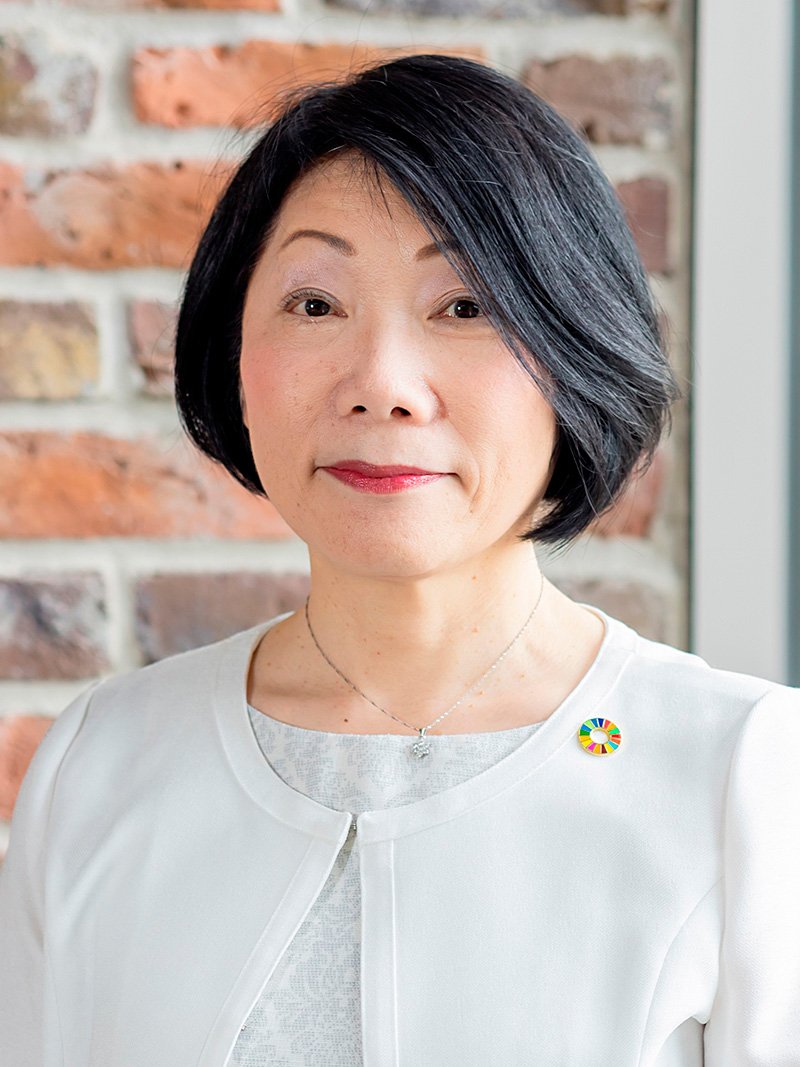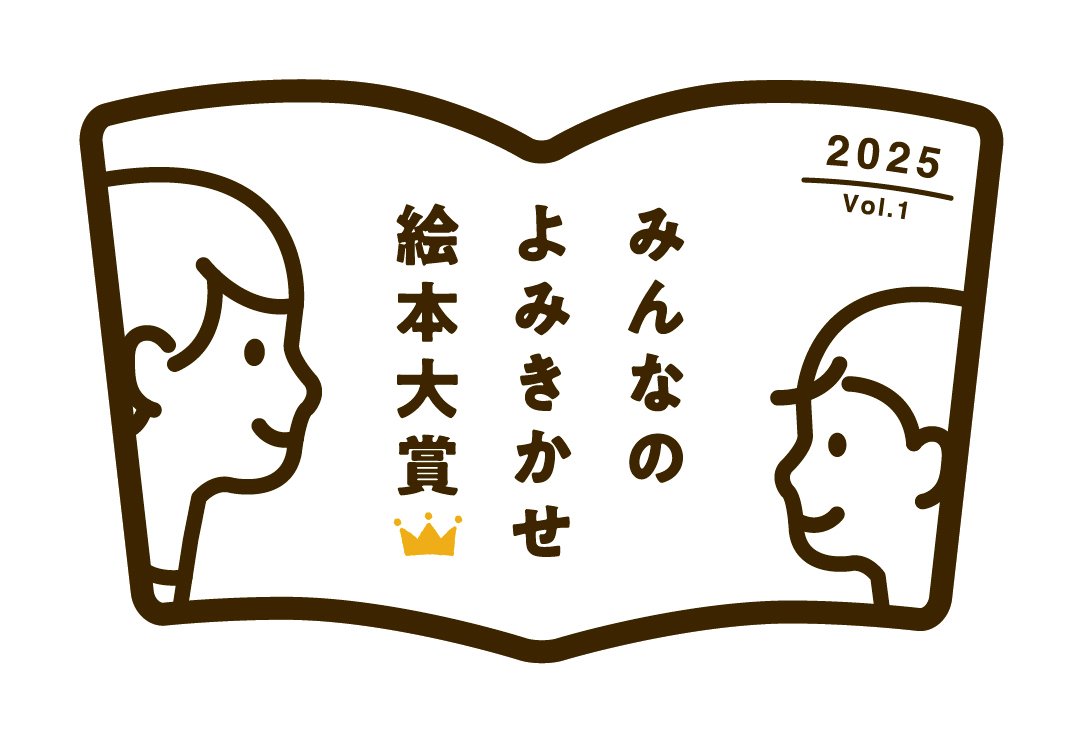University Co-ops staff help with work at consumer co-op stores and home delivery outlets
2020.09.10
There are 214 university co-ops in Japan, mainly consisting of students and faculty staff. They conduct businesses and activities to improve university life such as the operation of stores and cafeterias. Due to the new coronavirus, online classes are being conducted and will continue in many universities across Japan. This new norm has dramatically reduced the use of university facilities by students and faculty staff, resulting in the loss of workplace for staff working at the university co-op stores and cafeterias.
On the other hand, the community-based consumer co-ops have recorded a high increase in the number of store users and orders for home delivery that has caused a shortage of working staff. As a result, many consumer co-ops now accept staff from the local university co-ops to help with the work at the stores and home delivery divisions.
From May 14 to the end of September, Kyoto Co-op has accepted 40 university co-ops staff to help with store services, replenishment of items on store shelves, goods delivery to members' homes, and in the warehouses. An employee of Doshisha Co-op, who has been assigned to the store, said with a smile, "I was worried about what would happen to my job, but I am very grateful to Kyoto Co-op for accepting me to work with them. At a university co-op, I work in the division of store operation, and now through the work at Kyoto Co-op, I have gained a good experience that can be utilized in the future."
Under this present difficult situation, cooperation among co-operatives has helped solve employment problems being faced by university co-ops and on the other hand solved the labor shortages at consumer co-ops, which is beneficial for both parties.
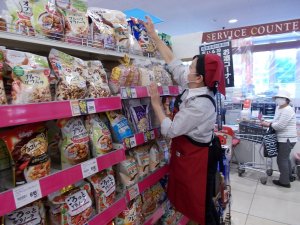
Another staff processing fruit at a Kyoto Co-op's store

